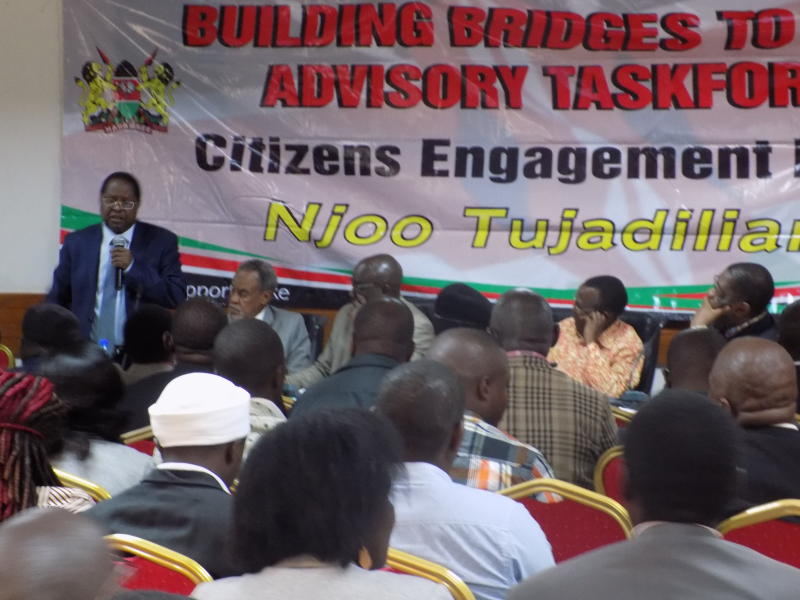×
The Standard e-Paper
Home To Bold Columnists

Majority of Kenyans are worried that violence in every election has been ingrained in the national pysche and that the current generation of youth and children are growing in a country without proper values.
In candid talks with the 14-member Building Bridges Initiative (BBI) Taskforce at public forums, citizens also talk “passionately” about the need to enhance devolution and call for an intensified fight on corruption.